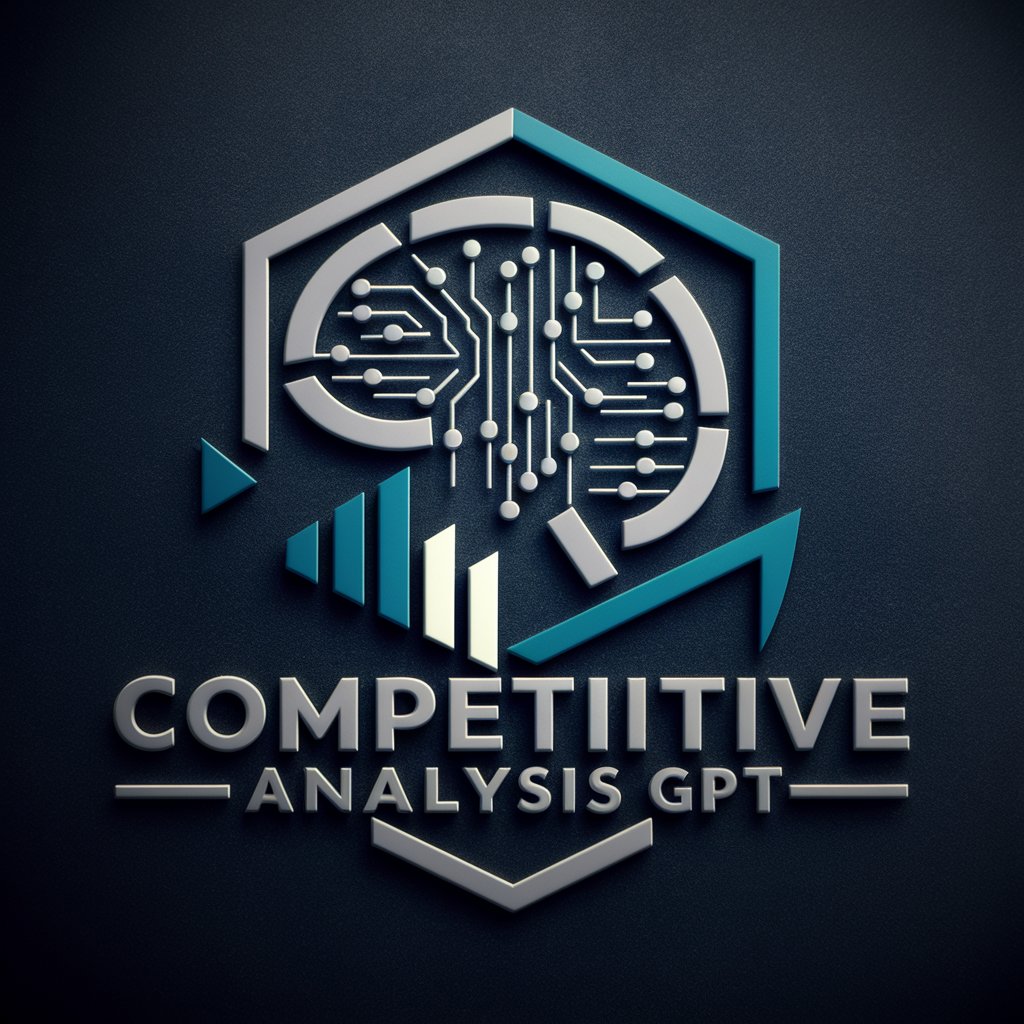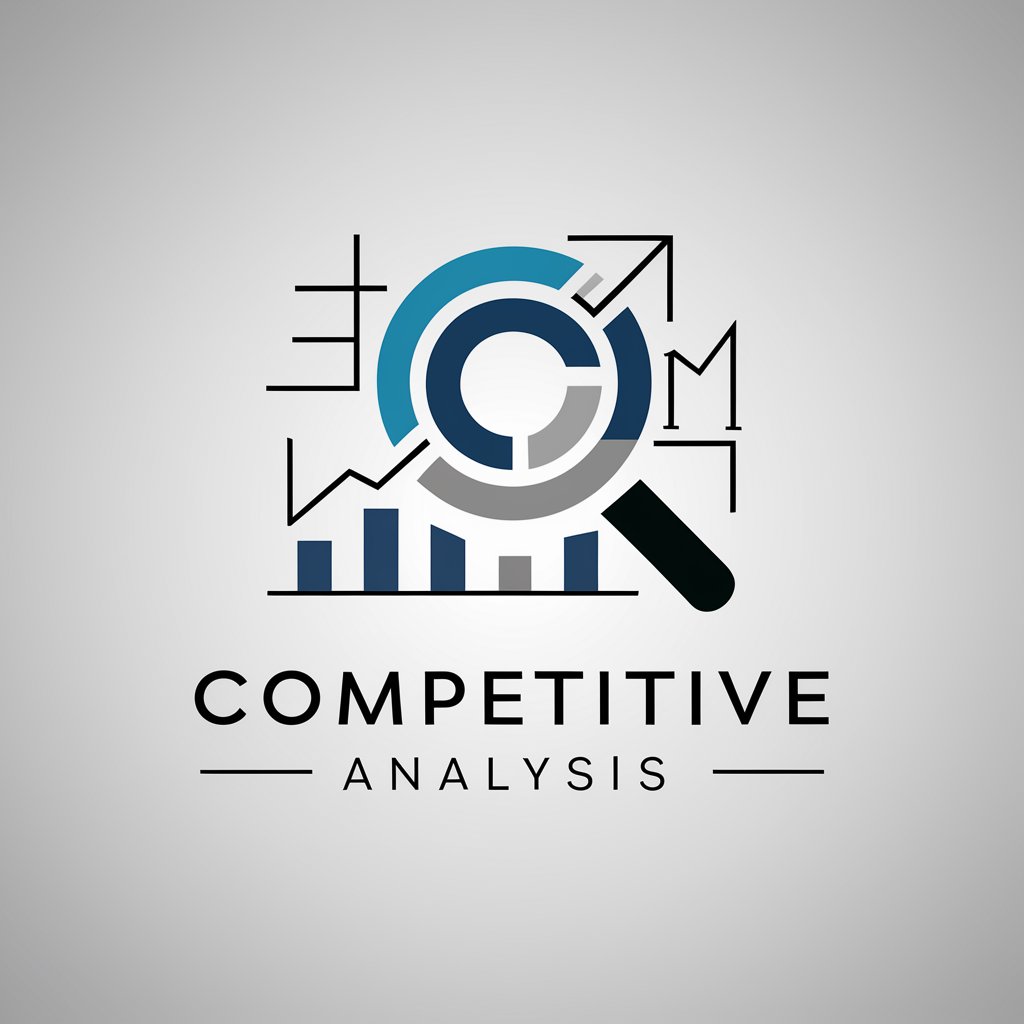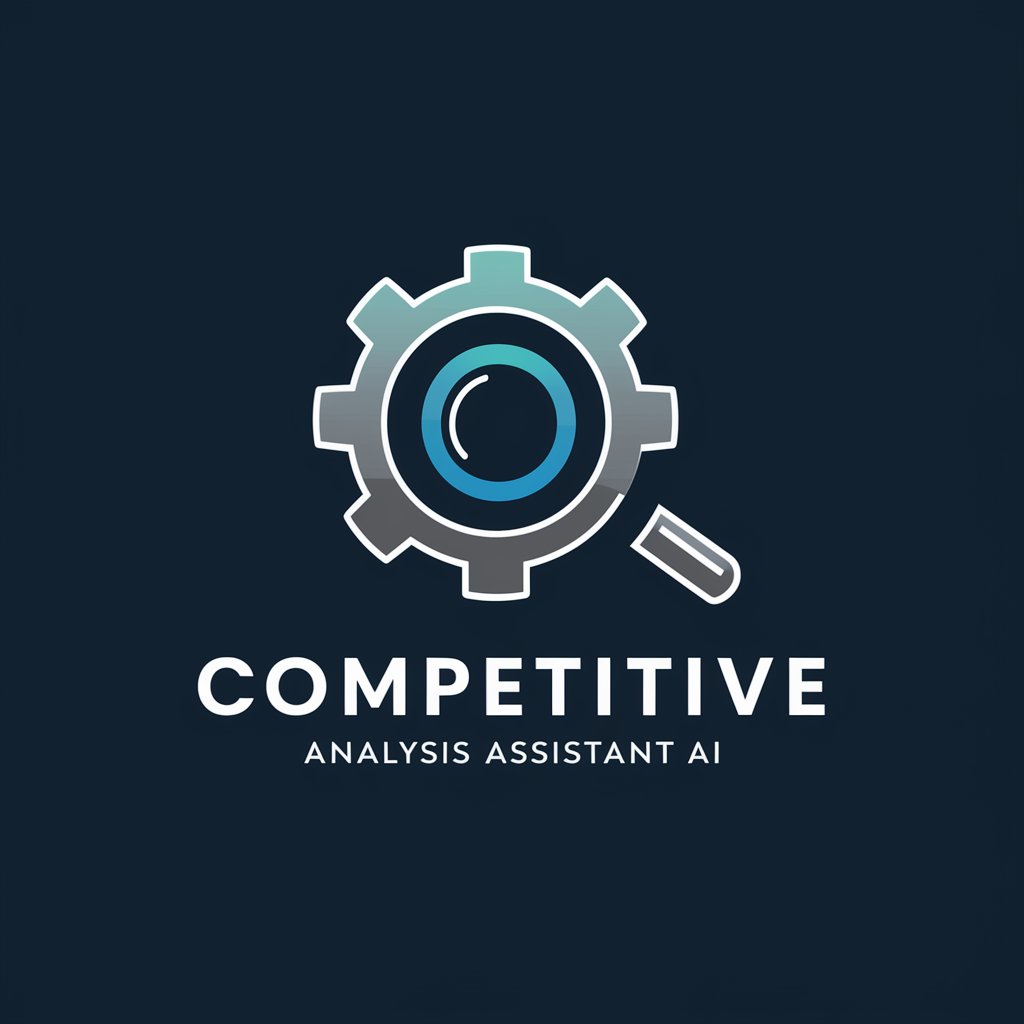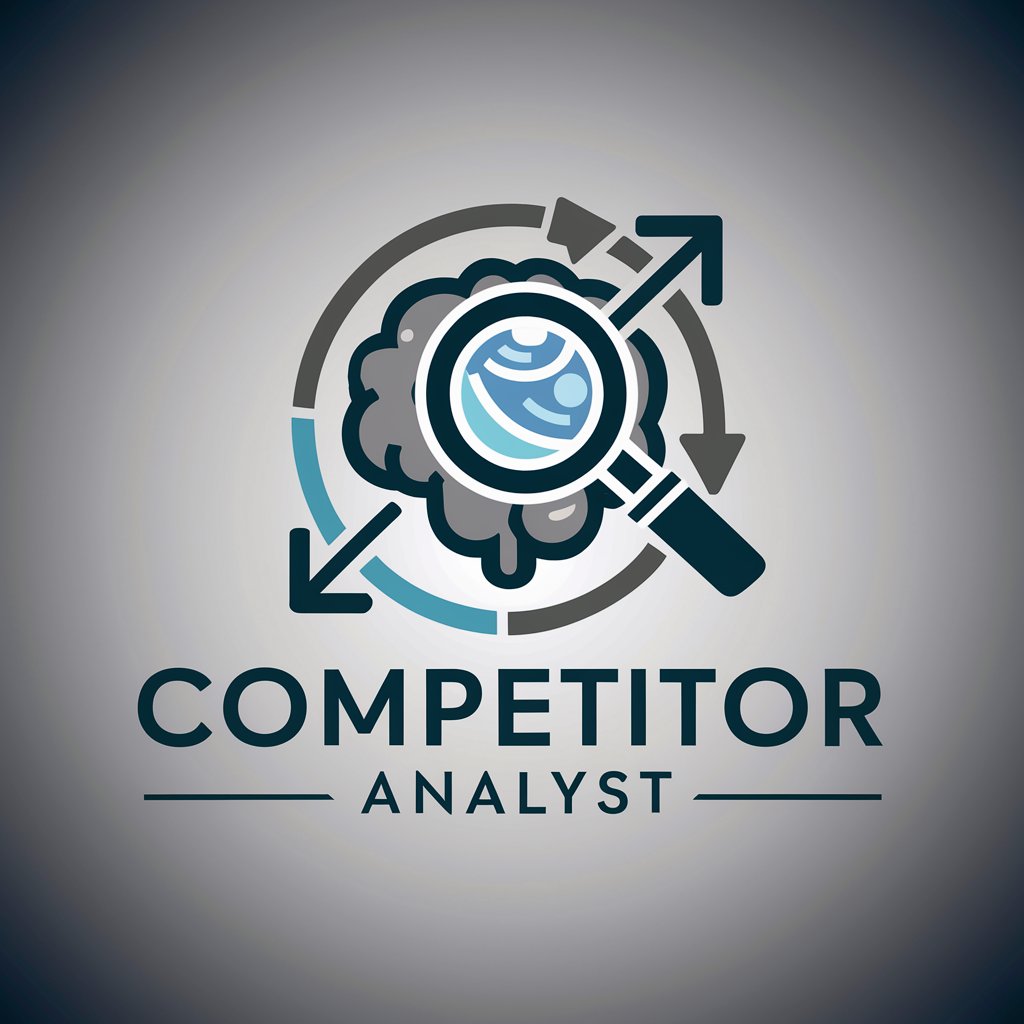
Competitive Analysis - AI-Powered Market Insights
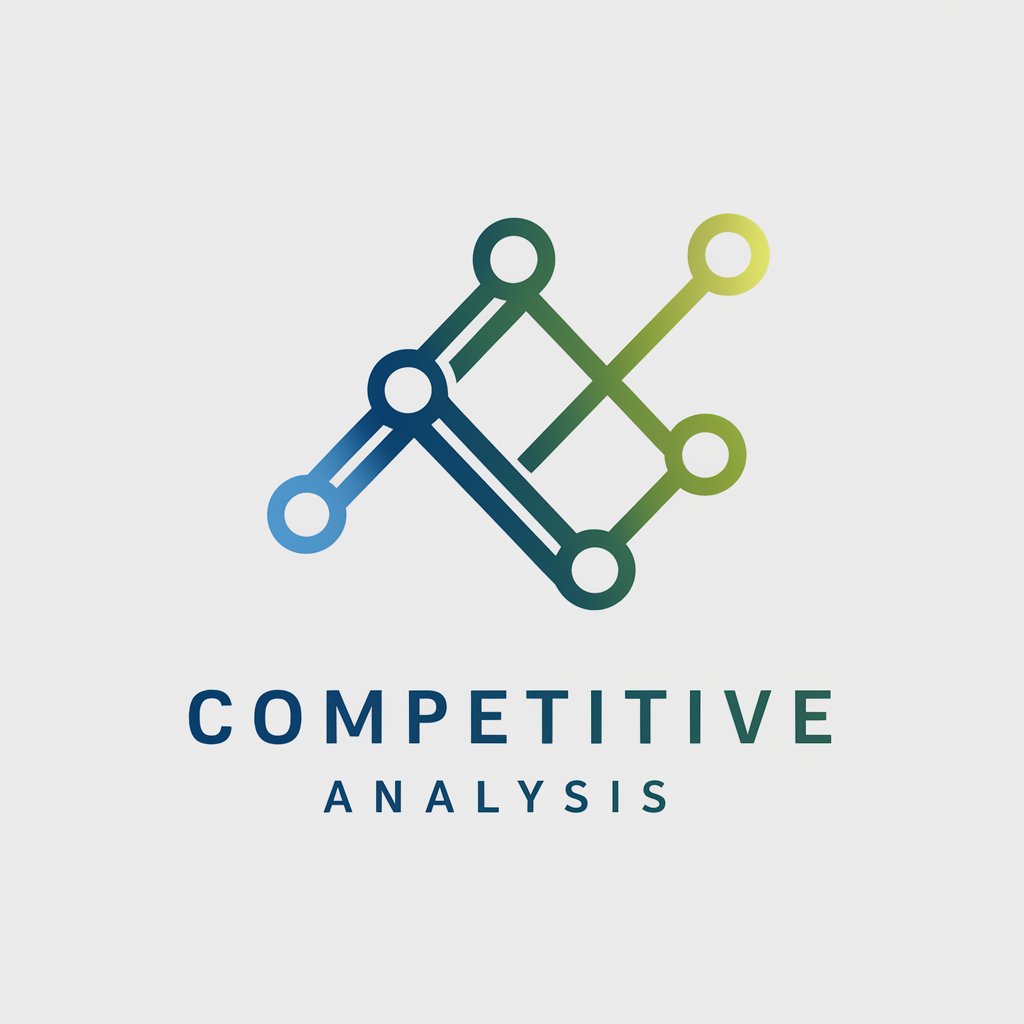
Welcome! Let's dive into competitive analysis to enhance your business insights.
Unlock competitive insights with AI
Compare the product features of Company A and Company B, focusing on customer reviews and industry standards.
Analyze the market presence and innovation strategies of two leading companies in the tech industry.
Provide a detailed comparison of customer feedback and average ratings for two competing software solutions.
Evaluate how Company A and Company B comply with industry regulations and the benefits this brings to users.
Get Embed Code
Introduction to Competitive Analysis
Competitive Analysis is designed as a strategic tool that aids businesses, marketers, and analysts in understanding their position within the competitive landscape. Its primary function is to evaluate how a company's products, services, or overall business strategies stack up against those of its competitors. This analysis encompasses a range of factors including product features, market share, pricing strategies, customer satisfaction, and compliance with industry standards. For example, a business may use Competitive Analysis to compare its cloud storage solution with those of its competitors, focusing on aspects such as storage capacity, security features, pricing, and customer feedback. This enables the business to identify its competitive edge or areas requiring improvement, shaping its strategy for market penetration or product development. Powered by ChatGPT-4o。

Main Functions of Competitive Analysis
Benchmarking Against Competitors
Example
Comparing the efficiency of two competing logistics companies in terms of delivery times, costs, and customer satisfaction ratings.
Scenario
A logistics company uses Competitive Analysis to understand how its delivery speed and operational costs compare with its main rival, incorporating customer feedback to pinpoint areas for service enhancement.
Assessing Market Trends and Customer Preferences
Example
Evaluating how two smartphone brands cater to evolving consumer demands for camera quality and battery life.
Scenario
A tech firm employs Competitive Analysis to track market trends in smartphone features, using this data to align its product development with consumer expectations and gain a competitive advantage.
Compliance and Standards Evaluation
Example
Analyzing how two food manufacturers comply with new organic certification regulations.
Scenario
A food manufacturing company uses Competitive Analysis to ensure its products meet the latest organic standards, comparing its compliance level to that of competitors to highlight its commitment to quality and safety in marketing efforts.
Customer Feedback and Ratings Summary
Example
Reviewing and summarizing the customer satisfaction scores and feedback of two competing e-commerce platforms.
Scenario
An e-commerce company leverages Competitive Analysis to aggregate customer reviews and ratings from various platforms, using this feedback to improve user experience and address common complaints.
Ideal Users of Competitive Analysis Services
Business Strategists
This group includes corporate planners, business strategists, and consultants who use Competitive Analysis to identify market opportunities, understand competitive threats, and develop strategic plans. They benefit from this service by obtaining a clear view of their competitive positioning, enabling informed decision-making for business growth and sustainability.
Marketing Professionals
Marketers, brand managers, and advertising specialists use Competitive Analysis to craft compelling marketing campaigns, position their products effectively, and identify unique selling propositions (USPs). This service helps them to fine-tune their marketing strategies based on insights into competitors' strengths and weaknesses, optimizing their approach to target audiences.
Product Managers and Developers
This group relies on Competitive Analysis to guide the development of new products or the enhancement of existing ones. By understanding the competitive landscape, product managers can prioritize features, address market gaps, and tailor their products to meet unique customer needs, driving innovation and ensuring that their offerings stand out in the market.
Compliance Officers
Compliance officers use Competitive Analysis to ensure that their company's products and services comply with industry standards and regulations. By comparing their compliance status with that of competitors, they can identify areas for improvement, mitigate risks, and leverage compliance as a competitive advantage in their marketing and operational strategies.

Using Competitive Analysis: A Step-by-Step Guide
1. Start Your Journey
Initiate your competitive analysis experience by accessing yeschat.ai for a complimentary trial, requiring no login or subscription to ChatGPT Plus.
2. Identify Competitors
Determine your direct and indirect competitors to focus your analysis. This could involve market research to understand the competitive landscape in your industry.
3. Gather Data
Utilize Competitive Analysis to collect data on your competitors' products, services, customer feedback, and market presence.
4. Analyze Data
Examine the collected data to identify strengths, weaknesses, opportunities, and threats in the competitive environment.
5. Apply Insights
Implement the insights gained from your analysis to refine your business strategy, focusing on areas of innovation, customer satisfaction, and market expansion.
Try other advanced and practical GPTs
AI Competitive Research
Harnessing AI for strategic competitive analysis.

Competitive Edge
Elevating Decisions with AI-Powered Insights

Competitive Insight
AI-Driven Competitive Intelligence Tool

Competitive Coder
AI-Powered Competitive Coding Coach

Competitive Buddy
AI-Driven Insights for Competitive Edge

Competitive Insigts
Empower Your Strategy with AI-Powered Market Insights

Competitive Coder
Optimizing code with AI-powered insights

Marketing Research and Competitive Analysis GPT
Empowering Insights with AI Analysis

Knowledge Army
Expert advice at your fingertips, powered by AI

Stardew Helper
Navigate Stardew Valley with AI-powered precision.

Simple Magic
Empower your creativity with AI-guided magic

Toshiaki
Revive the 2000s Chat with AI Power

FAQs About Competitive Analysis
What is Competitive Analysis?
Competitive Analysis is an AI-powered tool designed to provide businesses with comprehensive insights into their competitors' products, services, and customer feedback. It enables companies to identify market trends, regulatory compliance, and areas for innovation.
How can Competitive Analysis improve my business strategy?
By offering a deep dive into competitors' strengths and weaknesses, Competitive Analysis helps businesses to identify untapped market opportunities, refine product offerings, and enhance customer satisfaction strategies.
Can Competitive Analysis help with customer feedback analysis?
Yes, it integrates customer reviews and ratings from various platforms to give you a clear picture of market perceptions, allowing you to address concerns and capitalize on positive feedback.
Is Competitive Analysis suitable for all industries?
Absolutely. It's designed to adapt to any industry by providing relevant data on competitors, regulatory compliance, and customer insights, making it an invaluable tool for businesses across the board.
How often should I use Competitive Analysis for best results?
Regular use is recommended to keep up with market dynamics and competitor movements. Quarterly analyses can provide your business with timely insights to adjust strategies proactively.
